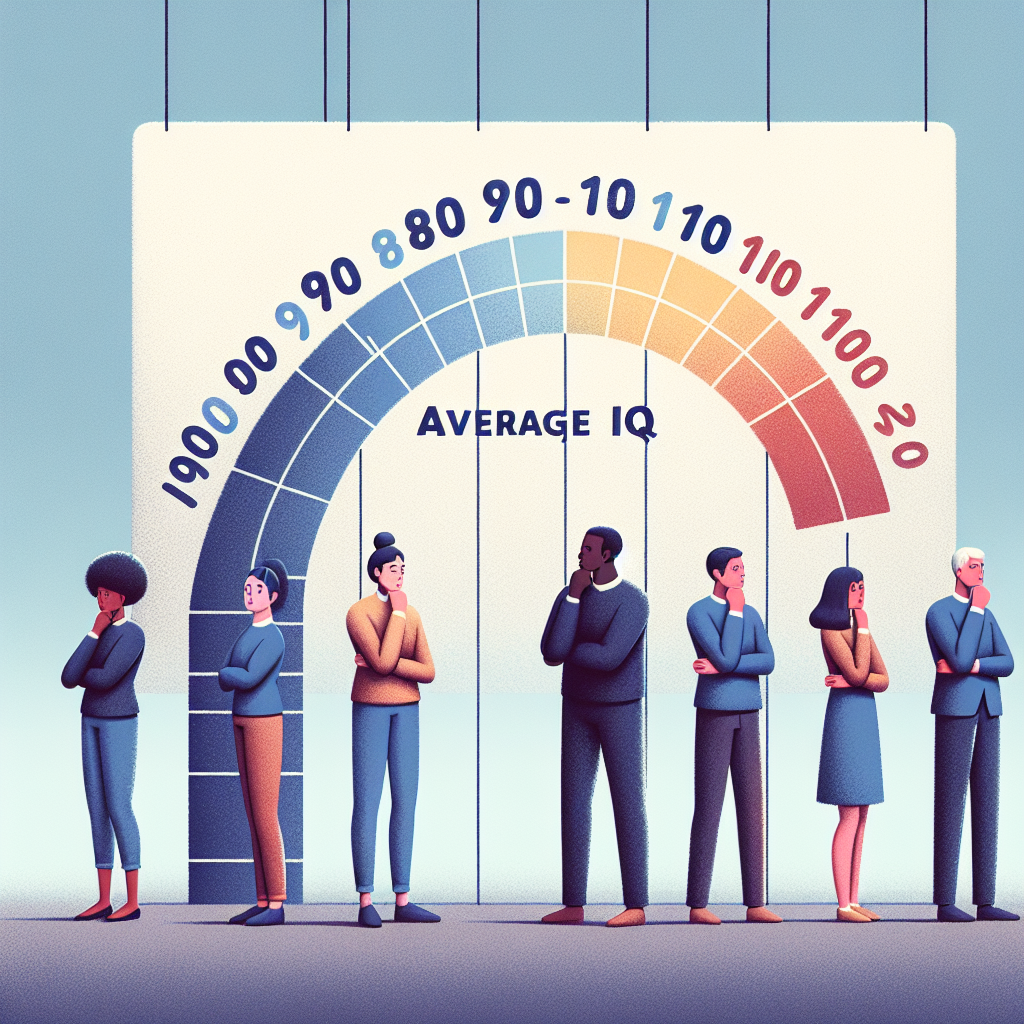Introduction to IQ and Intelligence Testing
Intelligence Quotient (IQ) is a score derived from standardized tests designed to measure human intelligence. The concept of IQ was developed in the early 20th century by psychologists seeking to quantify cognitive abilities. Understanding the average IQ helps us contextualize individual scores and analyze intelligence patterns across populations.

The Standard Average IQ Score
For modern IQ tests, the average score is set at 100 points with a standard deviation of 15 points. This means:
- 68% of people score between 85 and 115
- 95% of people score between 70 and 130
- Only about 2.5% score above 130 or below 70
How IQ Tests Are Standardized
IQ tests are regularly restandardized to maintain the 100-point average. Test makers administer the exam to a representative sample of the population and adjust scoring so the median result equals 100. This process, called “norming,” ensures the test remains accurate over time.
Global IQ Averages by Country
While the theoretical average is always 100 for properly normed tests, observed national averages vary significantly worldwide due to factors like education quality, nutrition, and environmental conditions.
| Country/Region | Average IQ |
| Singapore | 108 |
| Hong Kong | 108 |
| South Korea | 106 |
| Japan | 105 |
| China | 104 |
| United States | 98 |
| United Kingdom | 100 |
| Western Europe | 97-102 |
| Sub-Saharan Africa | 70-80 |
Note: These figures come from meta-analyses of IQ studies and should be interpreted cautiously due to methodological differences between studies.
Factors That Influence Average IQ
1. Education Quality
Access to quality education significantly impacts cognitive development and IQ scores. Countries with strong education systems typically show higher average IQs.
2. Nutrition
Proper nutrition, especially in early childhood, is crucial for brain development. Iodine, iron, and protein deficiencies can lower IQ potential.
3. Environmental Factors
Exposure to toxins like lead, pollution, or prenatal alcohol can negatively affect IQ. Conversely, stimulating environments boost cognitive development.
4. Genetics
While controversial, research suggests genetics account for about 50-80% of intelligence variation between individuals in developed countries.

The Flynn Effect: Rising IQ Averages
Named after researcher James Flynn, this phenomenon describes the steady increase in IQ scores across populations—about 3 points per decade. Possible explanations include:
- Improved education
- Better nutrition
- More cognitively stimulating environments
- Increased test familiarity
Interestingly, recent studies suggest this trend may be slowing or reversing in some developed nations.
Limitations of Average IQ Measurements
While useful, average IQ statistics have important limitations:
- Cultural bias: Tests may favor certain cultural backgrounds
- Narrow definition: IQ tests measure specific cognitive abilities, not all forms of intelligence
- Methodological differences: Studies use different tests and sampling methods
- Political sensitivity: National IQ comparisons can be controversial
Conclusion: Understanding IQ in Context
The average IQ serves as a useful reference point, but individual scores should be interpreted cautiously. Intelligence is complex and multidimensional, influenced by both nature and nurture. While IQ tests measure important cognitive skills, they don’t capture all aspects of human capability or potential.
For those curious about their own IQ, remember that properly administered tests by professionals provide the most accurate results. Online IQ tests often lack scientific validity.


